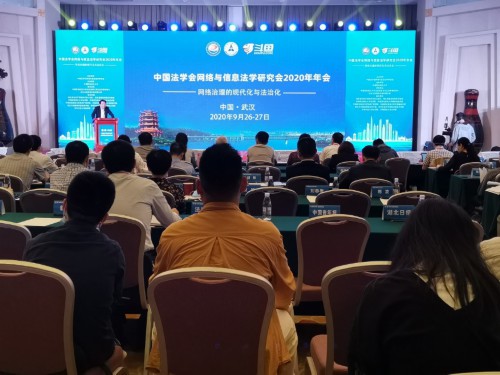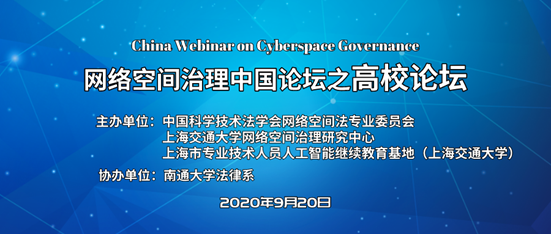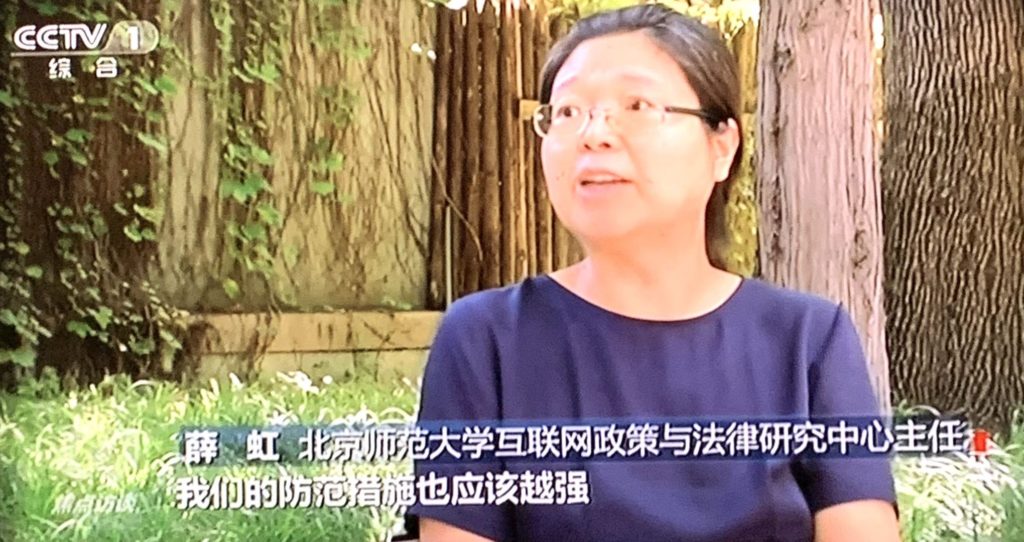Prof. Xue participated in the UNESCAP Expert Meetings
UNESCAP 8th Meeting of the Legal and Technical Working Groups on Cross-border Paperless Trade Facilitation was held on 14 OCT 2020 TO 16 OCT 2020 virtually. Prof. Xue took part in the meetings and presented the views on the legal issues in the implementation of the Framework Agreement on Facilitation of Cross-Border Paperless Trade in Asia and the Pacific.
The Framework Agreement on Facilitation of Cross-border Paperless Trade in Asia and the Pacific, a UN treaty deposited with the Secretary General of the United Nations in New York, was adopted by the Economic and Social Commission for Asia and the Pacific in May 2016.
The Framework Agreement aims at accelerating the implementation of digital trade facilitation measures for trade and development. Designed as an inclusive instrument accessible to countries at all levels of development to develop their capacity to engage in cross-border paperless trade, the final treaty text Trade cost reductions expected from full implementation of cross-border paperless trade are estimated at 10-30% of existing transactions costs, depending on the current state of paperless trade development in the participating countries. Significant benefits in terms of trade compliance are also expected.
Five ESCAP member states (Armenia, Bangladesh, Cambodia, China and Islamic Republic of Iran) formally signed the Framework Agreement in 2017. Azerbaijan acceded to the Framework Agreement in March 2018 and the Philippines acceded in December 2019. Islamic Republic of Iran ratified the Framework Agreement in May 2020 and Bangladesh ratified in October 2020. China is expected to ratify the Framework Agreement very soon and will become the fifth member state that effectuates the Agreement.
Prof. Xue primarily addressed the legal issues of cross-border data transfer and related security enforcement in the process of cross-border paperless trade. China has recently enacted the Export Control Law and prevents the goods, services and technologies (including source codes and algorithms) that endanger national security interests from being exported. The legal mechanism is developed from the technology import & export regulation, which largely divides the technologies into 3 types for the purpose of imports and exports. However, the Cybersecurity Law brings the data outflow into the play (Art. 37). The different legal mechanisms need harmonization and integration to avoid complicating the legal enforcement.
There are many questions left unanswered. Is the technology free for exports subject to the security assessment for data outflow? Are the traders of cross-border paperless trade CII operators? In addition to transaction and logistic documents, are the payment and property certificates (e.g. BLs) the financial data that is within the meaning of “important data “? Are the COs, customs declaration and many other authority sanctions the public service data? Does the data in the IoT, Blockchain and cloud computing outflow and should be subject to security assessment? Should the principle of non-discrimination be applied because the paper-based documents are subject to the same requirements? So many legal uncertainties may become the barriers for the implementation of the Framework Agreement. The concerns were strongly agreed by the other experts at the meetings.
Permalink Comments off




